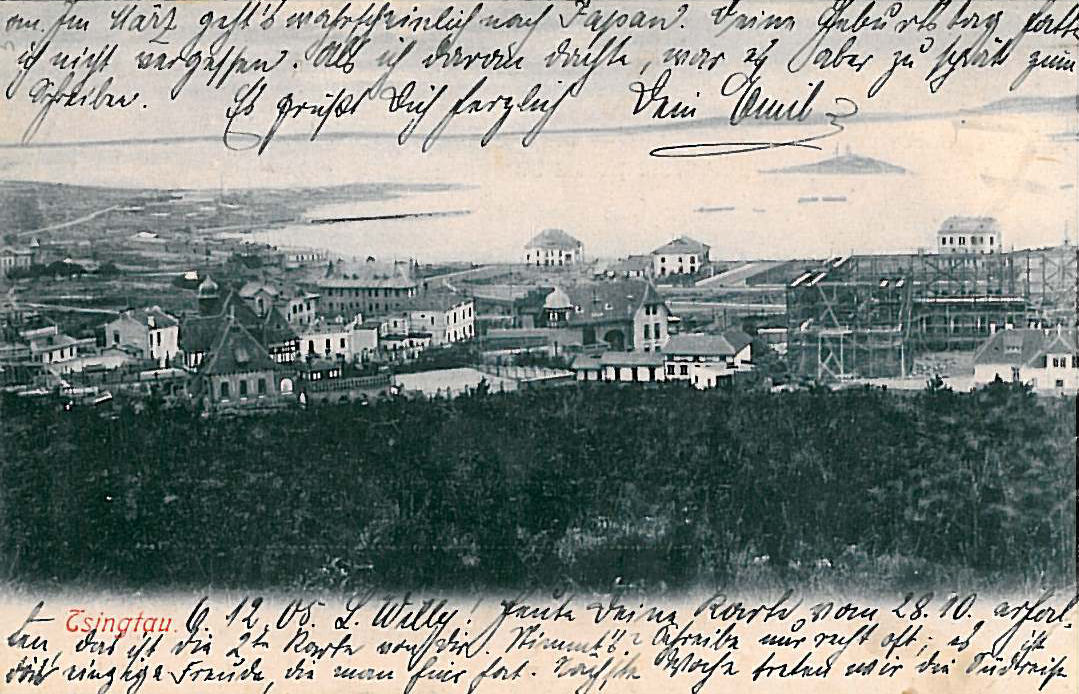German Hong Kong
Qingdao: the Kaiser's pearl in the heart of the east

German postcard from Qingdao (Tsingtau in German) dating back to the year 1900. Image from Commons.wikimedia.org
In the late 1800s, Wilhelm II's Germany set its sights on the Chinese region of Shandong. The area's fertile land and abundance of raw materials made it ideal for agricultural and industrial development, while its vast labor force and strategic location further enhanced its appeal. In 1897, in the village of Zhang Jia, a group of insurgents killed two German Catholic missionaries. Germany used this as a "casus belli": in short order, the German fleet occupied the Kiautschou Bay, imposing their conditions on the Chinese Empire. The Germans secured a 99-year lease on the bay, effectively extending their influence over the entire Shandong region.
In the bay area was a small fishing village, which was transformed into Qingdao (also known as Tsingtau), a city capable of rivalling Hong Kong, eventually earning the nickname "the Pearl of the East." The Germans developed ports, banks, railways, mines, and breweries; they also founded a university and numerous schools, many of which were run by Catholic and Protestant missionaries. It is said that Dietrich, the colonial governor, was dismissed by the Kaiser when it was discovered that he had built himself a villa identical to the Emperor’s own, complete with a Protestant church next to it.
Qingdao became known as the cleanest and most orderly city in all of Asia, thanks to its modern water and sewage systems, which also attracted elite Asian tourists. The colonial government was, unsurprisingly, authoritarian, with no fewer than eight police stations and a curfew prohibiting Chinese residents from being outside between 9 p.m. and dawn without a lantern.
While the city garnered admiration from some, such as Sun Yat-Sen, who praised it as a model for the future of Chinese cities, it also provoked envy and concern, especially from the British, who feared the German fleet stationed in Qingdao’s port. British anxieties aligned with Japan’s ambitions in China, leading to an anti-German alliance. Consequently, at the outbreak of World War I, Anglo-Japanese forces laid siege to and eventually occupied Qingdao, driving out the Germans in November 1914.
Book: Tiziano Terzani, La porta proibita (Chapter: Costruire per 100 anni. La vecchia colonia di Qingdao ), Tea, 2014
2025-04-21
Salvatore Ciccarello
